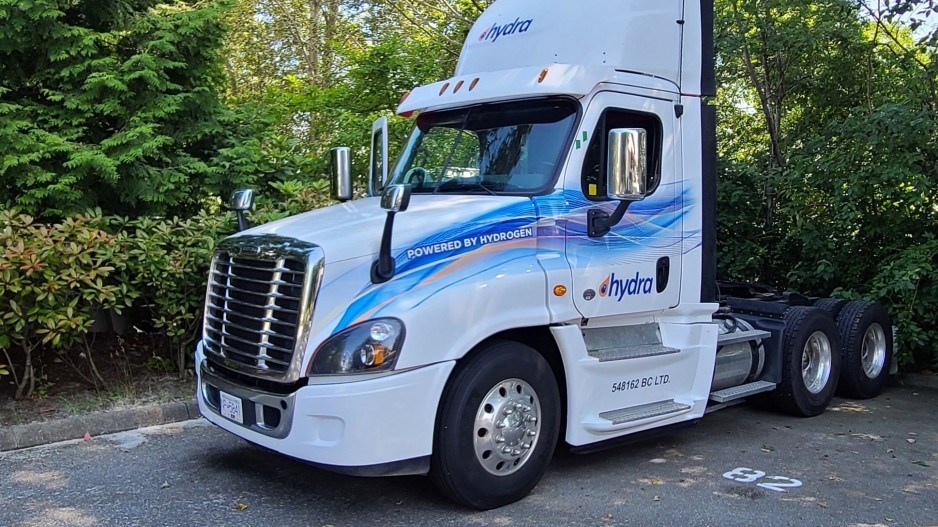There’s a chicken-and-egg problem facing some commercial fleets serious about reducing emissions, according to Jessica Verhagen.
Companies might have significant supplies of hydrogen but no one to take it off their hands.
“But then you don't have hydrogen at a low enough cost to be able to deploy that technology at scale,” said Verhagen, the CEO of Hydra Energy Corp.
She’s confident her cleantech startup is now poised to solve that problem after it revealed Thursday it had secured a $15-million investment to ramp up its commercialization efforts.
The Delta, B.C., company specializes in sourcing waste hydrogen from chemical partners to capture the fuel and provide it to commercial semi-truck fleets at below-diesel costs.
The company installs hydrogen-diesel co-combustion conversion kits into trucks within a few days and, at no additional cost, installs fuelling stations on-site for customers.
Hydra’s business model offers long-term fuel contracts at a fixed discount of 5% below diesel to attract customers that might be reluctant to convert their fleets from diesel to hydrogen over cost concerns.
With $15 million in hand from San Francisco-based investment firm Just Business, Hydra is now embarking on developing a waste-hydrogen capture plant in northeastern B.C.
The exact location of the plant has not yet been disclosed but Hydra is partnering with Chemtrade Logistics (TSX:CHE.UN) for its commercial deployment.
“We capture it, compress it, clean it up, distribute it to our refuelling station that dispenses hydrogen to 65 trucks,” Verhagen said.
The investment also “provides us with some runway on our operating costs, keeping the lights on and attracting and retaining talent, as well as being able to begin the execution of our first commercial-scale project,” she said, adding that project comes with a price tag upwards of $35 million.
With this week’s $15-million raise, Hydra has now raised $22 million to date.
The company currently has a headcount of nine full-time workers and nine contracted workers, while it looks to recruit machine learning specialists to help develop an algorithm that predicts how to calibrate the next make and model of trucks Hydra will focus on.
While the next big project will not be based in B.C., the company remains focused on the domestic market for now.
“It's a different market in Europe, so we'd have to enter with a different business model,” said Verhagen, who previously served as the company’s chief operating officer before her appointment as CEO was announced this week.
“Hydrogen is already valued a lot higher, so there's not really such thing as waste hydrogen because it has the value on it already.”




